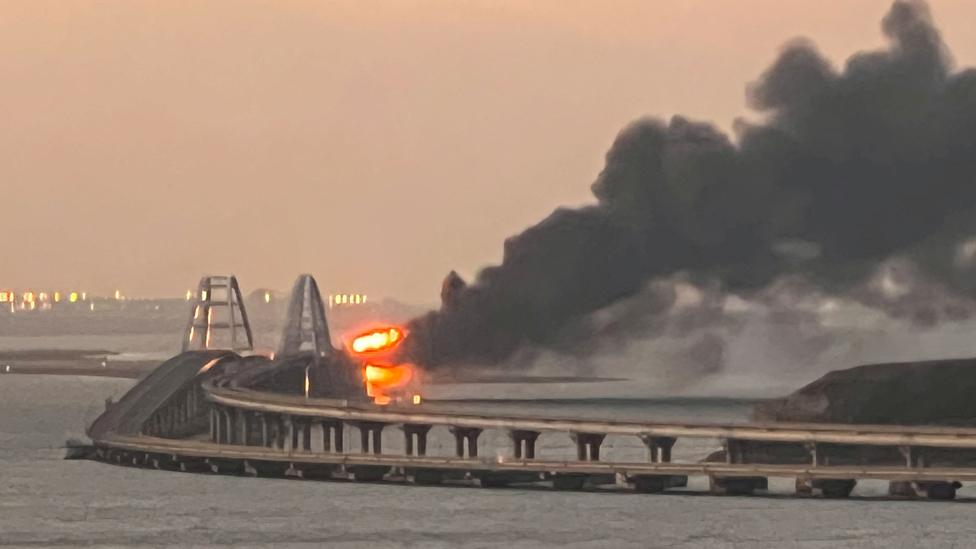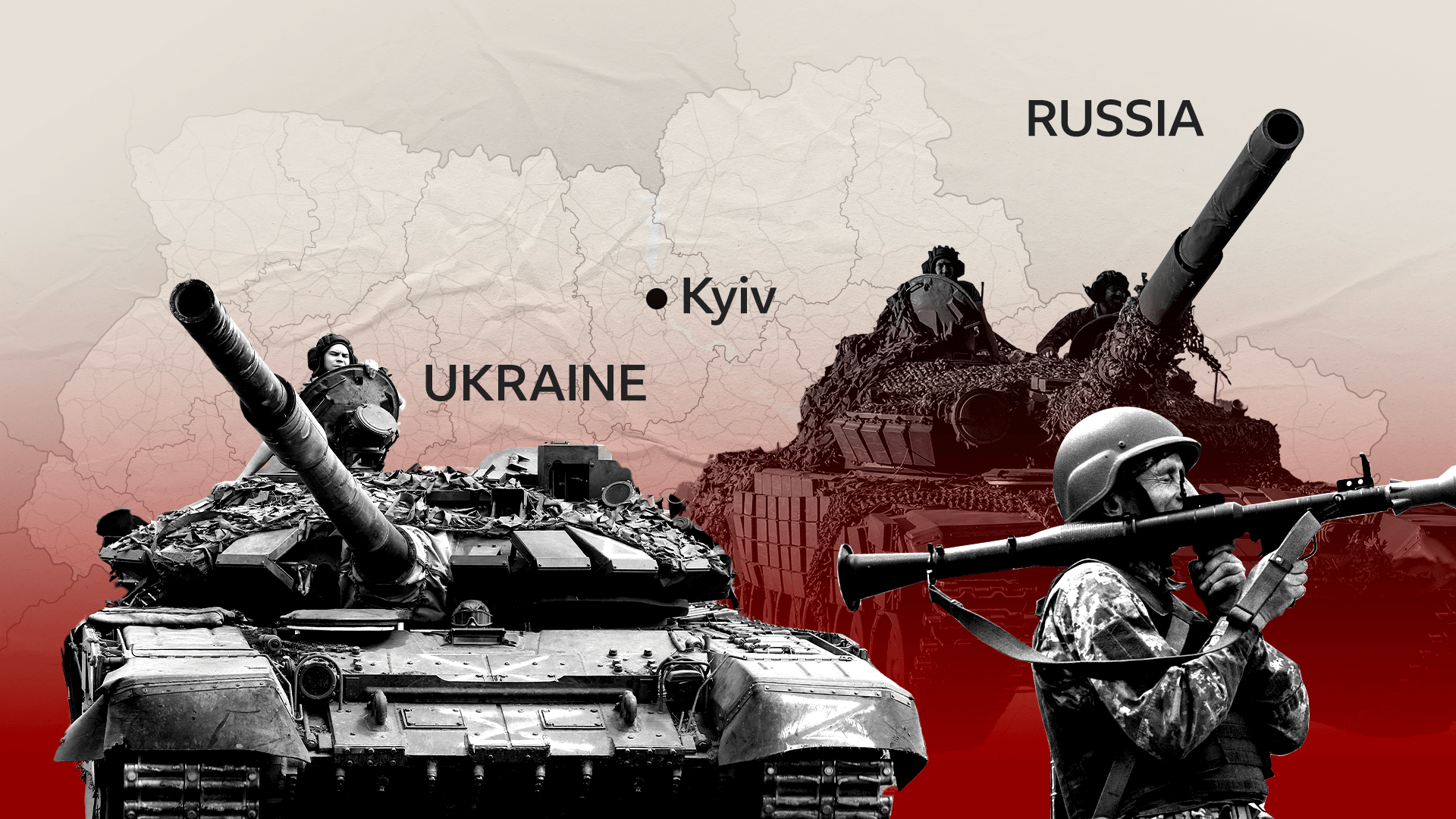Ukraine war: Russia says Crimean bridge partially open to cars again
- Published
- comments
Watch: Ros Atkins on... the latest Crimea bridge attack
The bridge linking Russia to Crimea has partially reopened a day after it was attacked, the Russian government says.
Vehicles were using a single lane of the bridge across the Kerch Strait, an official said, posting clips.
A holidaymaking couple were killed and their daughter injured in the attack on the bridge which Russia blamed on seaborne drones launched by Ukraine.
Russia refused to extend a deal to export grain from Ukrainian ports but denied this was retaliation.
Condemning the attack on the bridge as an act of terrorism against a critically important transport link, Russian President Vladimir Putin did however vow that the Russian military would respond.
Following that condemnation, Ukraine was attacked by a wave of Russian missiles overnight - including at the port of Odesa, with missile debris causing damage to the port and private homes, according to the state administration.
Russia's defence ministry said it was a "revenge strike" and claimed the missiles hit where Ukrainians had allegedly planned the Kerch Bridge attack, according to Russian news agency Interfax. That claim has not been verified.
Russia's Deputy Prime Minister Marat Khusnullin earlier posted video on the Crimea Bridge which appeared to show cars crossing it at night. He said he hoped two-way traffic could be restored by mid-September.
Russia's transport ministry says the bridge's supports were not damaged in the attack, which ruptured the span.
The Kerch Bridge was opened in 2018 and enables road and rail travel between Russia and Crimea - Ukrainian territory annexed by Russia in 2014 after an internationally unrecognised referendum.
The bridge's parallel railway line seems not to have been damaged.
Ukraine has not officially said it carried out the attack but a source in its security service told BBC Russian it was behind it and that water-based drones had been used.
As yet, the BBC not seen any visual evidence to confirm the reports.
The bridge is an important resupply route for Russian forces occupying parts of southern Ukraine since they invaded on 24 February of last year.
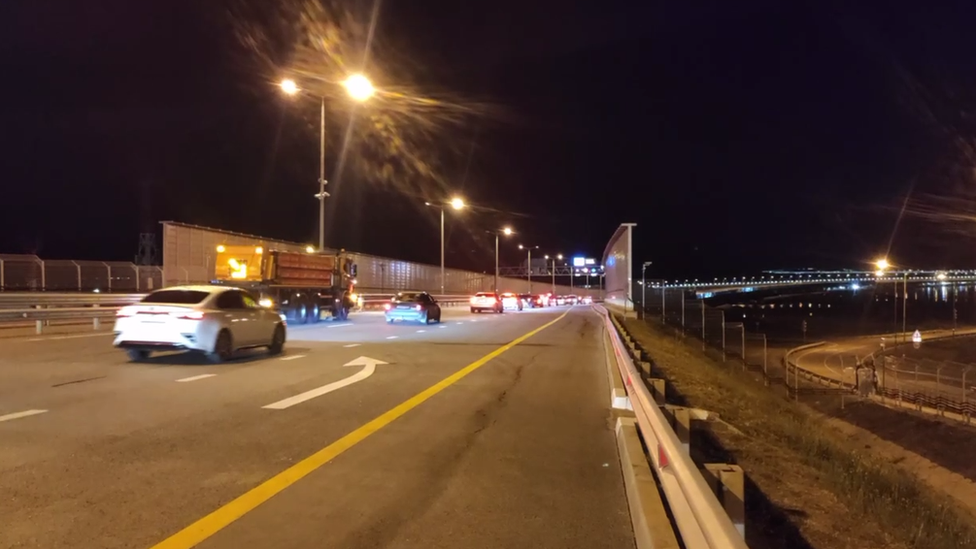
A video on Deputy PM's Marat Khusnullin's telegram appears to show cars crossing the Kerch bridge
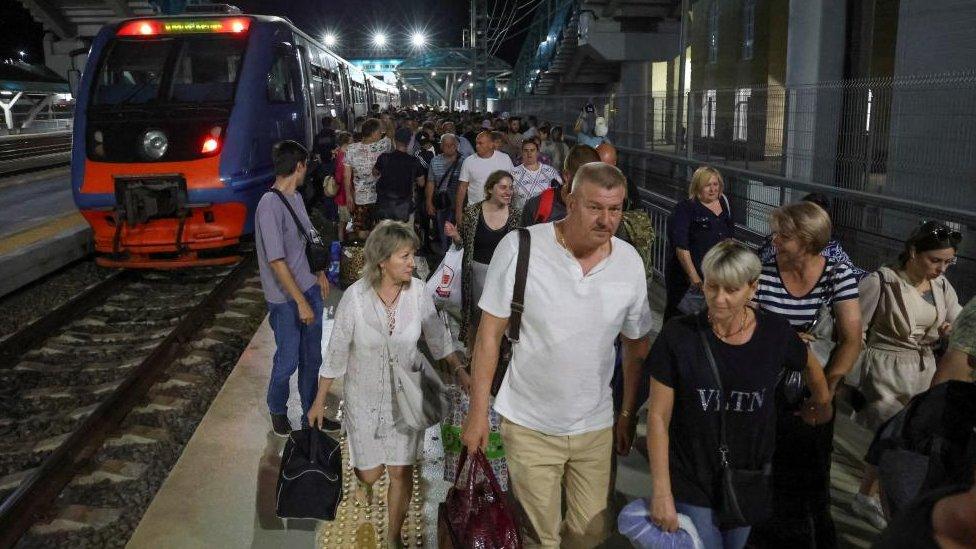
Russian holidaymakers leaving a train which crossed the Kerch Bridge on Monday
The new attack is the second major incident on the Kerch Bridge in the past year.
In October the bridge was partially closed following an attack. It was fully reopened in February.
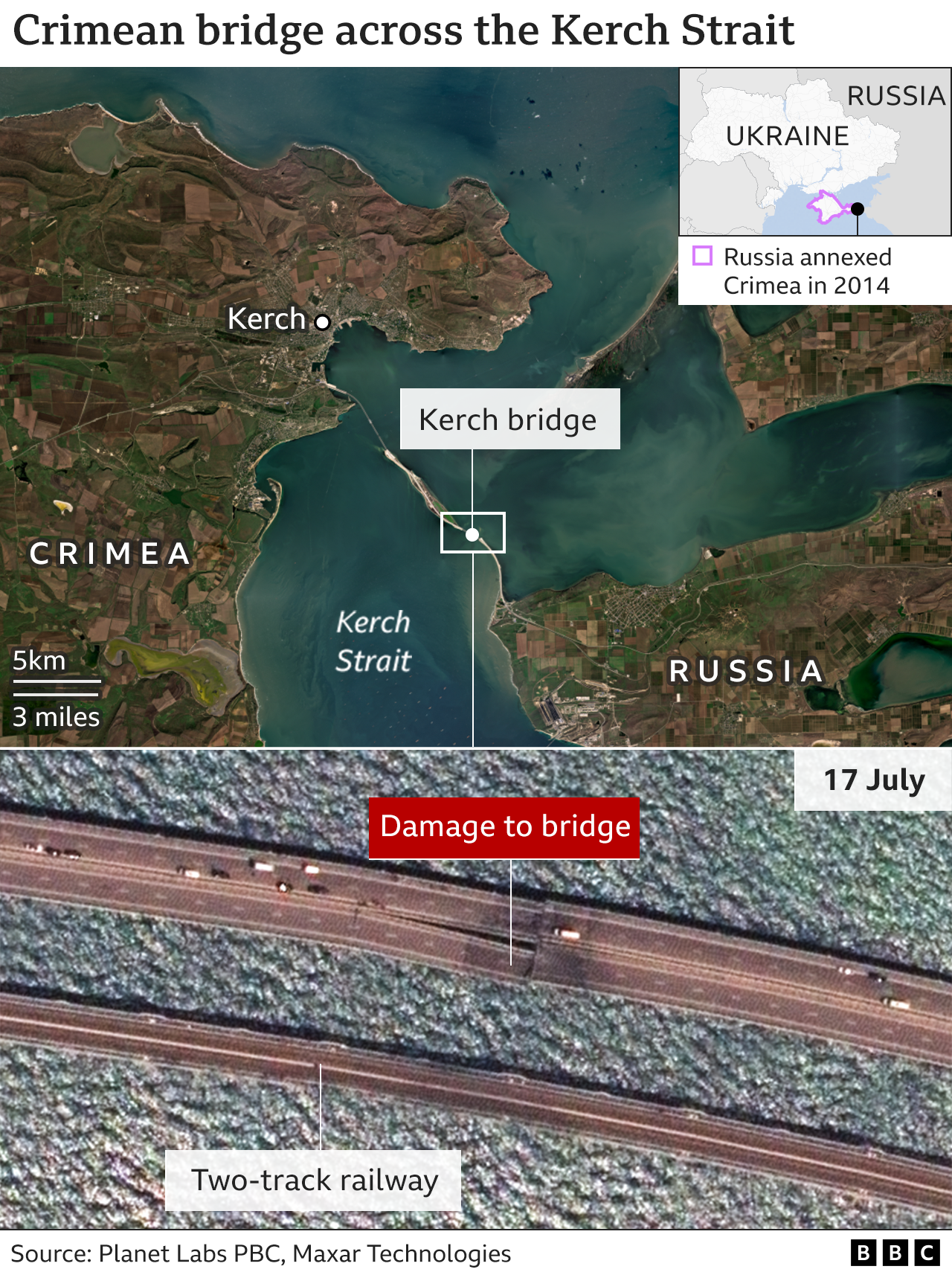
Russian foreign ministry spokeswoman Maria Zakharova accused Ukraine of attacking the Kerch bridge with the "direct participation" of the UK and the US, but provided no evidence to back up the assertions.
Kremlin spokesman Dmitry Peskov said there was no connection between the incident and Russia's decision to suspend its participation in a deal allowing Ukraine to ship out grain through the Black Sea.
UN Secretary-General Antonio Guterres said hundreds of millions of people facing hunger around the world would "pay the price" for Russia's withdrawal from the deal.
He promised the UN would continue efforts to "facilitate the unimpeded access" to global markets of food and fertilisers from Ukraine and Russia.
The US National Security Council Co-ordinator, John Kirby, accused of Russia of resuming an "effective blockade of Ukrainian ports".
"Russia will be fully and solely responsible for the consequences of this military act of aggression," he said on Monday. "Indeed, we are already seeing a spike in global wheat, corn and soybean prices just today as a result of Russia's suspension."
Ukraine's Foreign Minister, Dmytro Kuleba, said Russia's decision was deplorable. "I call on all UN member states to firmly demand that Russia resume its participation in the deal in good faith and stop its 'hunger games'," he said. "Russia must keep politics out of global food security."
Related topics
- Published17 July 2023
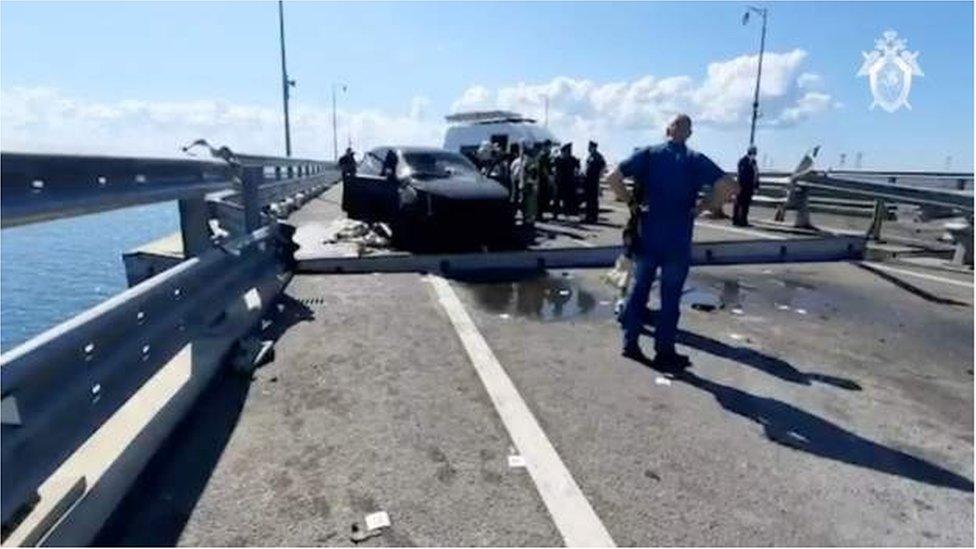
- Published18 July 2023
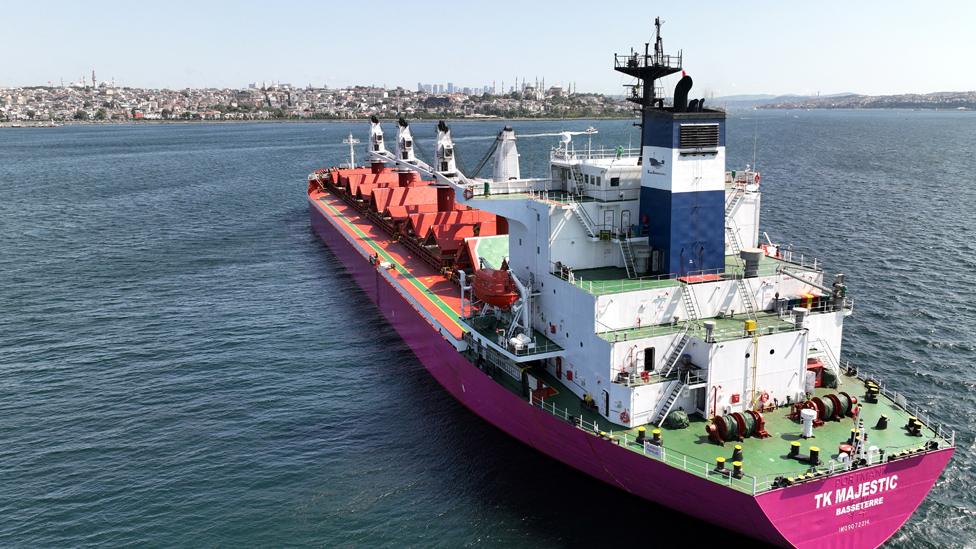
- Published9 October 2022
